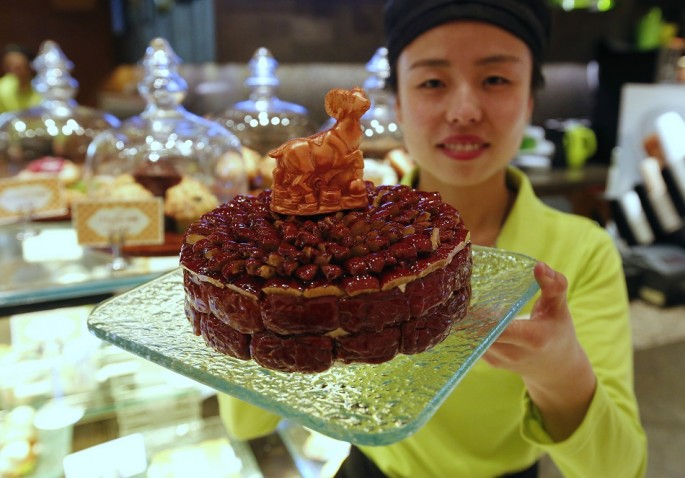With rising incomes and easier access to foreign foods, Chinese preference for baked goods is beginning to be influenced by foreign ideas.
Bobo Lee, who established his studio Bobo Lee Wedding Cakes in Shanghai two months ago, said that more young Chinese are beginning to love special cakes and are learning how to make those themselves.
"It's all part of a process. At first, couples did not think of having wedding cakes. Now they want a cake, but don't have too many ideas about how it should look. I think it takes time to accept the idea," Lee said.
Ruby Gao, a food and wine editor at Shanghai Daily, said that Chinese customers are also beginning to prefer pastries created by celebrity chefs.
A rush of high-end foreign bakers into China brought in well-known French dessert boutique Angelina, which opened in Beijing and Shanghai last year. COVA, which started in 1817 in Italy, has opened four branches in Shanghai.
However, since high-quality milk and flour are not being produced locally, ingredients have to be imported, making locally produced pastries more expensive than those purchased abroad.
"The big challenge is ingredient sourcing and as far as I know lots of high-end pastry shops here import ingredients, because they want to ensure their quality," said Gao.
The country consumed about 4 million tons of pastry each year, around two and a half times more than what was eaten in the U.S., and more than any other nation.
There still a lot of room for growth in China's bakery market as the annual per capita consumption of baked goods is only 5 kilograms, much less than in other countries with traditional dietary habits similar to theirs.
This is far less than in Korea where the annual purchase of baked goods averages 8 kilograms.




























